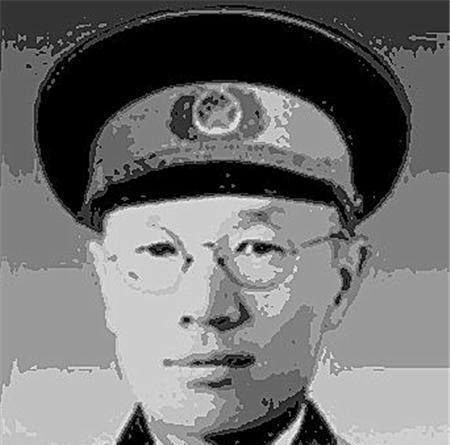Speaking of Wan Yi, the Chinese people said that he was a famous anti-Japanese general in our country, but the Japanese pseudo said: "I am not afraid of ten thousand, I am afraid of Wan Yi (in case)", from this sentence, it can be seen that Wan Yi was once a heroic figure who made the Japanese and pseudo famous and fearful, and at the same time, he was also the youngest regimental commander of the Northeast Army and one of Zhang Xueliang's most proud generals.

Wan Yi
Born in Liaoning, Wan Yi began to join the army at the age of 18, entered the 9th stage of the Northeast Army Lecture Hall, and won the appreciation of the young marshal Zhang Xueliang with the first place in the examination. After graduation, he went to Nanjing with Zhang Xueliang and served as a major regimental commander, battalion commander, and regimental deputy under the deputy commander-in-chief of the army's navy and air force.
During the outbreak of the September 18 Incident, the patriotic Wan Yi led his soldiers to march, but he offended Chiang Kai-shek. Chiang Kai-shek personally called Zhang Xueliang and demanded that Wan Yi be severely punished, but Wan Yi's weight in Zhang Xue's conscience was not ordinary, and he did not punish Wan Yi, and Wan Yi escaped the disaster.
Chang
At the beginning of 1936, Wan Yi became the commander of the 627th Regiment of the 109th Division of the Northeast Army, the youngest regimental commander of the Northeast Army. After the Xi'an Incident, Wan Yi led the 627th Regiment to participate in the defense of Nanjing. After a long fierce battle, Wan Yi had exhausted the strength of one regiment, and he was the only one in the whole regiment who survived.
Wan Yi spent all his money to resist the invaders, and it is reasonable to say that his contribution was very large. However, old Jiang secretly remembered the events of that year and put 3 big hats on Wan Yi's head: one was fornication with the Japanese army, the second was an accessory to the Xi'an Incident, and the third was suspected of being a communist. With these 3 big hats, Wan Yi was sent to court.
Although Wan Yi was dumbfounded by the other party in court, he knew that Chiang Kai-shek would not give up, so he secretly fled, left the Nationalist army, and joined the Eighth Route Army.
After joining the Eighth Route Army, Wan Yi successively served as deputy commander of the coastal detachment of the Eighth Route Army, commander of the 2 detachments of the Northeast Advance Detachment, and first deputy commander of the Jilin Military Region.
During the Liberation War, Wan Yi first served as the commander of the 1st Column of Northeast Democracy, and soon after was transferred to the political commissar of the 1st Column, and then as the commander of the 5th Column of the Northeast Field Army. He led his troops to participate in famous battles such as "Three Lower Jiangnan, Four Bao Linjiang", the Capture of Siping, the Liaoshen Campaign, and the Pingjin Campaign, and beat Chiang Kai-shek's army to a high cry.
After the founding of New China, Wan Yi served as the commander of the Artillery Headquarters of the Central and Southern Military Region. After the outbreak of the War to Resist US Aggression and Aid Korea, Wan Yi served as the commander of the special forces of the Volunteer Army and the commander of the artillery, and led his troops to participate in the first and second battles. After the end of the Korean War, he became the director of the Equipment Planning Department of the General Staff of the People's Liberation Army. In 1955, when China implemented the military rank system, Wan Yi was awarded the rank of lieutenant general, which was the highest rank among the generals in the northeast.